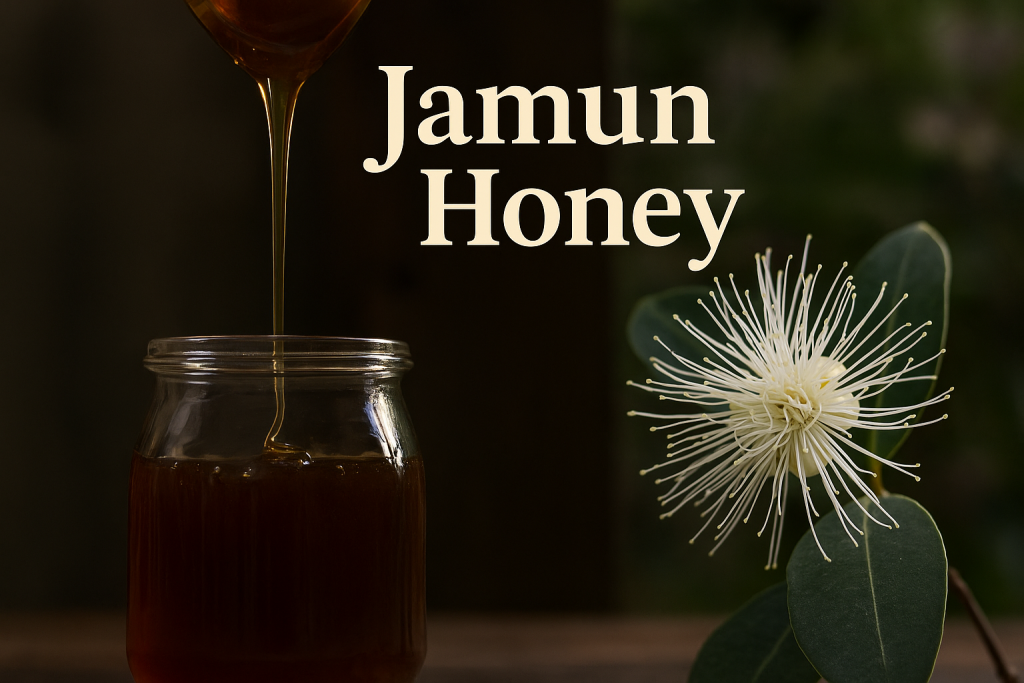Jamun honey qualifies as monofloral honey because bees collect nectar mainly from Jamun flowers. To meet this classification, at least 45% of the honey’s pollen content must come from one floral source — in this case, the Jamun flower.
Thanks to its rich pollen content and natural aroma, Jamun honey is truly authentic. Moreover, health-conscious consumers appreciate it for its potential to support natural blood sugar balance.
2. The Source – Jamun Tree and Flower
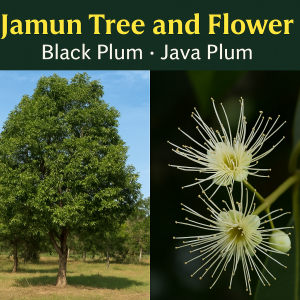
The Jamun tree, also known as Black Plum or Java Plum, grows in tropical and subtropical parts of India. It’s also found in countries like Sri Lanka and Nepal.
-
Season: June to July (summer)
-
Regions: North India
-
Flowers: Small, white blooms rich in nectar and pollen
Bees such as Apis Dorsata, Apis Mellifera, and Apis Cerena Indica actively collect nectar from these blossoms during the flowering season.
3. What Makes Jamun Honey Special?
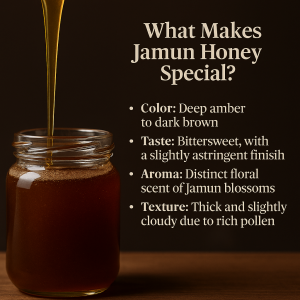
Jamun honey is known for its:
-
Color: Deep amber to dark brown
-
Taste: Bittersweet, with a slightly astringent finish
-
Aroma: Distinct floral scent of Jamun blossoms
-
Texture: Thick and slightly cloudy due to rich pollen
Together, these characteristics make Jamun honey a favorite among those seeking raw, unprocessed honey.
4. Nutritional Background
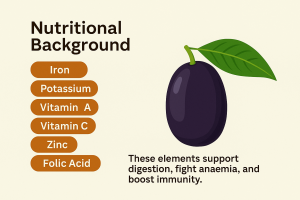
Jamun fruit delivers essential nutrients such as:
-
Iron, Potassium, Vitamin A, Vitamin C, Zinc, and Folic Acid
These elements support digestion, fight anaemia, and boost immunity. As a result, many of these benefits carry over into Jamun honey.
5. Health Benefits of Jamun Honey
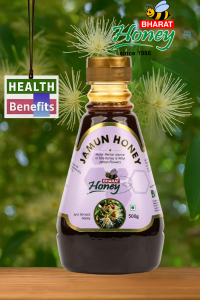
Jamun honey contains powerful compounds that promote health. Specifically:
-
Antioxidants lower oxidative stress and protect the heart.
-
Anti-inflammatory agents soothe the gut and aid healing.
-
Antibacterial and antifungal properties guard against infections.
-
Flavonoids support the nervous system and prevent artery blockages.
-
Vitamins and minerals enhance metabolism and support weight control.
It can also promote oral health, improve digestion, and may encourage better sleep.
6. Jamun Honey and Diabetes
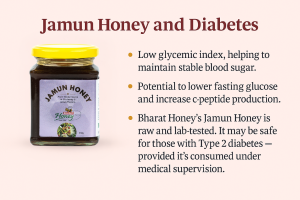
Jamun has long been used in traditional medicine for managing diabetes. For this reason, Jamun honey provides:
-
A low glycemic index, helping to maintain stable blood sugar.
-
Potential to lower fasting glucose and increase c-peptide production.
Bharat Honey’s Jamun Honey is raw and lab-tested. It may be safe for those with Type 2 diabetes — provided it’s consumed under medical supervision.
7. Ways to Use Jamun Honey
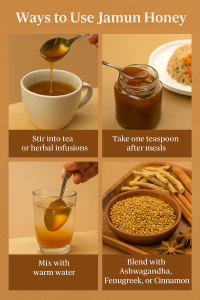
Here are several effective ways to enjoy Jamun honey:
-
Stir into tea or herbal infusions as a natural sweetener.
-
Take one teaspoon after meals to aid digestion.
-
Mix with warm water for a quick energy boost.
-
Blend with Ashwagandha, Fenugreek, or Cinnamon for wellness (consult a doctor first).
Regular use may help reduce fatigue and support daily wellness.
8. Watch Out for Fake Jamun Honey
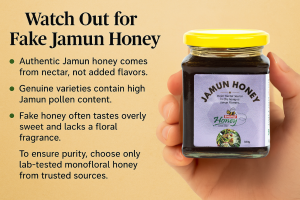
Be cautious — some products are misleading. Here’s how to spot the real thing:
-
Authentic Jamun honey comes from nectar, not added flavors.
-
Genuine varieties contain high Jamun pollen content.
-
Fake honey often tastes overly sweet and lacks a floral fragrance.
To ensure purity, choose only lab-tested monofloral honey from trusted sources.
9. Why Choose Bharat Jamun Honey?
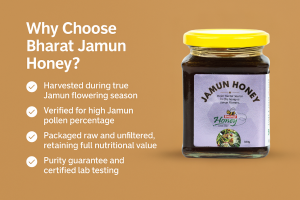
Bharat Honey stands out for several reasons:
-
It’s harvested during the true Jamun flowering season.
-
Verified for high Jamun pollen percentage.
-
Packaged raw and unfiltered, retaining full nutritional value.
-
Supported by a purity guarantee and certified lab testing.
In short, this is more than honey — it’s a natural superfood you can trust.
Conclusion: Discover the Power of Jamun Honey
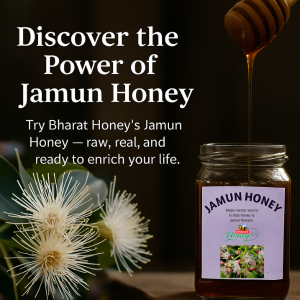
Jamun honey isn’t just a sweetener. Instead, it’s a natural, therapeutic alternative to refined sugar, especially beneficial for people managing diabetes.
With its rich flavor, authentic purity, and proven health benefits, it’s a smart choice for anyone embracing a natural lifestyle.
Try Bharat Honey’s Jamun Honey — raw, real, and ready to enrich your life.
🌐 Shop online: bharathoney.com
Directions: httpss://g.page/Bharathoney

